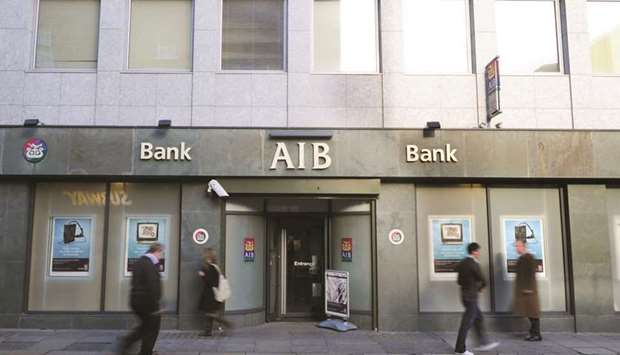Ireland raised €3bn ($3.4bn) by selling a quarter of Allied Irish Banks (AIB) on Friday in a remarkable turnaround for a company at the forefront of reckless lending during the “Celtic Tiger” boom.
The sale took the overall return for the state from AIB to nearly half the €21bn spent to bail the bank out after a massive property crash in 2009, the biggest bill for any Irish lender still trading.
The state ended up with 99.9% of AIB and has been nursing it back to health, with the aim of eventually recouping all the taxpayer money it ploughed into the lender, one of three it managed to save in the eurozone’s most costly state rescue.
The initial public offering (IPO) of 25% of AIB’s shares at €4.40 each was the third largest European bank listing since the financial crisis and the biggest IPO of any kind in London by market capitalisation in almost six years.
“The successful completion today of AIB’s IPO represents a significant milestone,” Finance Minister Paschal Donohoe said of the long-awaited share sale his predecessor Michael Noonan launched in May.
“This successful IPO has created a strong platform for the state to recover all the money it has invested in AIB and to further dispose of our banking investments for the benefit of the Irish people,” Donohoe said.
In the biggest test yet of investor appetite for the Irish banking sector since the crisis, the AIB shares on offer were four times oversubscribed and sold at the midpoint of an initial €3.90 to €4.90 range set last week.
The sale price valued the bank at €11.9bn, meaning investors only received a 3% discount to the bank’s book value of €12.3bn at the end of 2016 — or 0.97 times tangible book value.
That put AIB shares at a premium to its main Irish rival Bank of Ireland, which trades at 0.87 times book value, and towards the level of European rivals such as Lloyds and ABN Amro.
Shares in the bank climbed 7% to €4.71 in unofficial trading ahead of next Tuesday’s formal debut on the Dublin and London stock exchanges.
“Although the valuation only leaves around 7% upside versus our target price, we believe the potential for special dividends, excess capital and strong top down dynamics in Ireland are likely to be supportive of the stock price,” Keefe, Bruyette & Woods analyst Daragh Quinn wrote in a note.
Like Ireland’s economy, which is growing faster than any other in Europe, AIB has staged a strong recovery, posting a profit for each of the last three years and becoming the first domestically owned lender to restart dividends since the crash.
The return for the state from the IPO, together with the amount AIB has repaid in capital, fees, dividends and coupons since its bailout, now comes to almost €10bn.
“This is a landmark day for the bank,” AIB chief executive Bernard Byrne said in a statement.”The level of investor interest and support is a great vote of confidence in the strength of the turnaround in the bank and the wider economy.”
Ireland pumped €64bn into its banks and expects to turn a profit on the half given to the three that survived.
Noonan said last month it would probably take eight to 10 years to return AIB fully to private ownership.
The government will use Friday’s proceeds to cut some 1.5% from a national debt that at €200bn is still among the highest in the eurozone by most measures.
As the deal also includes a greenshoe, or over-allotment option, the size of the IPO could rise to 28.75% if demand proves higher than expected following AIB’s debut — and add another €400mn to state coffers.

Pedestrians pass a branch of the Allied Irish Bank in Dublin. The initial public offering of 25% of AIB’s shares at u20ac4.40 each was the third largest European bank listing since the financial crisis and the biggest IPO of any kind in London by market capitalisation in almost six years.
